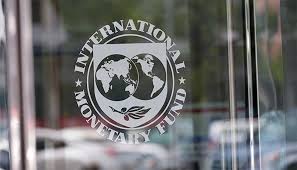The International Monetary Fund has pointed out that exchange rate depreciations contributed to Africa’s rise in public debt by about 10 percentage points of Gross Domestic Product (GDP) on average by end-2022.
According to the Fund, weaker currencies pushed up public debt, with about 40% of public debt external in Sub-Saharan Africa and over 60% of that debt in US dollars for most countries.
Again, it said in an analysis on the theme "African Currencies Are Under Pressure Amid Higher-for-Longer US Interest Rates" that growth and inflation (which reduces the real value of existing debts) helped to contain the public debt increase to about 6% of GDP during the same period.
Continuing, the Fund said “the depreciations across the region were mostly driven by external factors. Lower risk appetite in global markets and interest rate hikes in the United States pushed investors away from the region towards safer and higher paying US treasury bonds”.
“Foreign exchange earnings took a hit in many countries as demand for the region’s exports dropped because of the economic slowdown in major economies. At the same time, high oil and food prices, partly due to Russia’s war in Ukraine, pushed up import costs in 2022”, it explained.
Also, large budget deficits, it stressed, have compounded the effects of these external shocks by increasing the demand for foreign exchange, adding, “About half of the countries in the region had deficits exceeding 5% of GDP in 2022, putting pressure on their exchange rates.
Weaker currencies pushed inflation up
The report said local prices rose when currencies weakened against the US dollar.
“When currencies weaken against the US dollar, local prices rise, as much of what people buy, including essential items like food, are imported”.
It explained that more than two-thirds of imports are priced in US dollars for most countries in the region
Furthermore, it said 1.0 percentage point increase in the rate of depreciation against the US dollar leads, on average, to an increase in inflation of 0.22 percentage points within the first year in the region.
“There is also evidence that inflationary pressures do not come down quickly when local currencies strengthen against the US dollar”.
Fiscal consolidation to help rein external imbalances
Given that the external shocks are expected to persist, the Fund said countries where exchange rates are not pegged (fixed) to a currency have little choice but to let the exchange rate adjust and tighten monetary policy to fight inflation.
However, countries with pegged exchange rates will need to adjust monetary policy in line with the country of the peg.
In both country groups, it concluded that fiscal consolidation can help to rein in external imbalances and limit the increase in debt related to currency depreciation.
Latest Stories
-
Jaguar Land Rover electric car whistleblower sacked
6 minutes -
US makes third interest rate cut despite inflation risk
12 minutes -
Fish processors call for intervention against illegal trawling activities
24 minutes -
Ghana will take time to recover – Akorfa Edjeani
56 minutes -
Boakye Agyarko urges reforms to revitalise NPP after election defeat
1 hour -
Finance Minister skips mini-budget presentation for third time
1 hour -
‘ORAL’ team to work gratis – Ablakwa
1 hour -
Affirmative Action Coalition condemns lack of gender quotas in Transition, anti-corruption teams
2 hours -
December 7 election was a battle for the ‘soul of Ghana’ against NPP – Fifi Kwetey
2 hours -
Social media buzzing ahead of Black Sherif’s ‘Zaama Disco’ on December 21
2 hours -
Afenyo-Markin still suffering from the massive defeat – Fifi Kwetey
2 hours -
Retain Afenyo-Markin as NPP leader, he has experience – Deputy Speaker
2 hours -
Kufuor didn’t leave behind a strong economy – Fifi Kwetey
2 hours -
It won’t be business as usual, remain humble – Fifi Kwetey to party members
3 hours -
Ebenezer Ahumah Djietror appointed as new Clerk to Parliament
4 hours

